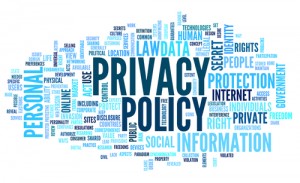Posted by Health Law Informer Author
on August 25, 2016
Federal Trade Commission,
HIPAA,
OCR /
No Comments
On July 29, 2016, the Federal Trade Commission (“FTC” or “Commission”) reversed an FTC administrative law judge’s (“ALJ”) opinion which had ruled against the FTC, finding that the Commission had failed to show that LabMD’s conduct caused harm to consumers to satisfy requirements under Section 5 of the FTC Act. In reversing the ALJ, the FTC issued a unanimous opinion and final order that concluded, in part, that public exposure of sensitive health information was, in itself, a substantial injury.
The FTC initially filed a complaint against LabMD in 2013 under Section 5 of the FTC Act, alleging that the laboratory company failed to “provide reasonable and appropriate security for personal information on its computer networks,” which the FTC claimed lead to the data of thousands of consumers being leaked. The complaint resulted from two security incidents that occurred several years prior, which the FTC claimed were caused by insufficient data security practices.
In its opinion, the FTC concluded that the ALJ had applied the wrong legal standard for unfairness and went on to find that LabMD’s data security practices constituted an unfair act or practice under Section 5 of the FTC Act. Specifically, the Commission found LabMD’s security practices to be unreasonable – “lacking even basic precautions to protect the sensitive consumer information on its computer system.” The Commission stated that “[a]mong other things, [LabMD] failed to use an intrusion detection system or file integrity monitoring; neglected to monitor traffic coming across its firewalls; provided essentially no data security training to its employees; and never deleted any of the consumer data it had protected.” As a result of these alleged shortcomings in data security, medical and other sensitive information for approximately 9,300 individuals was disclosed without authorization.
Further, and perhaps more importantly, the Commission concluded that “the privacy harm resulting from the unauthorized disclosure of sensitive health or medical information is in and of itself a substantial injury under Section 5(n), and thus that LabMD’s disclosure of the [ ] file itself caused substantial injury.” Thus, contrary to the findings of the ALJ, the Commission essentially held that the mere exposure of sensitive personal and health information into the public domain may be enough to constitute a substantial injury for purposes of Section 5, without any proof that the information was ever misused.
As a result, the FTC ordered LabMD to establish a comprehensive information security program, obtain independent third party assessments of the implementation of the information security program for 20 years, and to notify the individuals who were affected by the unauthorized disclosure of their personal information and inform them about how they can protect themselves from identity theft or related harms.
Takeaway: While LabMD has announced its intention to appeal, the FTC’s decision reinforces its role as an enforcer of data security, even in the health care arena, where OCR has been the traditional enforcer of HIPAA and health care data breaches. Thus, in addition to OCR, health care entities must continue to monitor FTC enforcement actions to see if there are any additional or conflicting data security standards mandated by both agencies. Any companies handling PHI should, therefore, continue to ensure that their data security policies and procedures are being implemented and followed in accordance with industry standards. Inadequate security safeguards may contribute to data breaches resulting in government investigations and enforcement actions – not just by OCR, but the FTC as well.
For more information about the FTC’s opinion, contact Gregory M. Fliszar or a member of Cozen O’Connor’s Health Law team.
About The Author
Tags: ALJ, LabMD, PHI
Posted by Health Law Informer Author
on March 30, 2016
Healthcare,
Hospital /
No Comments
MedStar, a Washington, D.C.-area hospital chain, became the latest healthcare industry victim of a cyber-attack when hackers breached its systems with a crippling virus. MedStar operates 10 hospitals in the D.C./Baltimore region, employs 30,000 staff, has 6,000 affiliated physicians, and serviced more than 4.5 million patient visits in 2015.
After being paralyzed by the virus, MedStar’s entire IT system for its 10 hospitals was forced to shut down and revert to paper records. The chain’s approximately 35,000 employees do not have access to emails and cannot look up digital patient records in the attack’s wake. The FBI is assisting the chain by investigating the incident. It’s unclear at the moment whether or not the hackers are demanding ransom from MedStar in exchange for removing the virus.
Monday’s cyber-attack at MedStar comes weeks after Hollywood Presbyterian Medical Center in Los Angeles paid hackers 40 bitcoins, or about $17,000, to regain control of its computer system, which hackers had seized with ransomware using an infected email attachment.
Hackers increasingly target healthcare entities as security protections in healthcare often lag behind those in banking and financial sectors. Healthcare information contains a treasure trove of patients’ personal information, and a complete healthcare record is worth at least ten times more on the black market than credit card information. Also, hospitals are considered critical infrastructure that cannot reasonably be closed or incapacitated for any great length of time, and so may be more inclined to bowing to hackers’ demands for ransom.
This latest attack just goes to show the importance of cybersecurity at hospitals and other healthcare entities. In addition to the recent Hollywood Presbyterian Medical Center attack, data breaches and cyber-attacks have also recently occurred at Excellus Blue Cross Blue Shield, UCLA Health System, Premera Blue Cross, and Anthem Inc.
For more information, please contact Dana Petrillo, or another member of Cozen O’Connor’s Health Law team.
About The Author
Tags: attack, bitcoin, breach, cyber, data, hacker, HIPAA, hospital, PHI, ransom, security, virus
Posted by Health Law Informer Author
on March 21, 2016
HHS,
OCR /
No Comments
 On consecutive days, the Office of Civil Rights (“OCR”) of the Department of Health and Human Services (“HHS”) recently announced two large HIPAA breach settlements. On March 16, 2016, OCR announced that it entered into a Resolution Agreement with North Memorial Health Care of Minnesota for $1.55 million plus a two-year corrective action plan. On March 17, 2016 OCR followed by announcing that Feinstein Institute for Medical research, a New York biomedical research institute, agreed to pay to OCR $3.9 million and enter into a three-year corrective action plan to settle potential HIPAA violations. Both cases resulted from the all too familiar scenario of breaches resulting from stolen, unencrypted laptops.
On consecutive days, the Office of Civil Rights (“OCR”) of the Department of Health and Human Services (“HHS”) recently announced two large HIPAA breach settlements. On March 16, 2016, OCR announced that it entered into a Resolution Agreement with North Memorial Health Care of Minnesota for $1.55 million plus a two-year corrective action plan. On March 17, 2016 OCR followed by announcing that Feinstein Institute for Medical research, a New York biomedical research institute, agreed to pay to OCR $3.9 million and enter into a three-year corrective action plan to settle potential HIPAA violations. Both cases resulted from the all too familiar scenario of breaches resulting from stolen, unencrypted laptops.
In the Minnesota hospital breach, the unencrypted laptop containing the PHI of over 9,000 individuals was stolen from the locked car of an employee of a business associate of the hospital. According to the OCR’s investigation, the hospital failed to have a business associate agreement in place with that particular business associate. OCR also alleged that the hospital had not previously performed a risk analysis to identify and address potential risks and vulnerabilities to the ePHI it maintained, accessed or transmitted.
In the New York research corporation breach, OCR alleged that the institution did not have policies and procedures in place, including a policy on encryption and one that addressed use and access of electronic devices (e.g., the removal of the devices from the institution’s facility), nor did it have in place a security management process that sufficiently addressed potential security risks and vulnerabilities to ePHI, namely, its confidentiality, vulnerability or integrity. Notably, the stolen, unencrypted laptop contained the PHI of approximately 13,000 individuals.
As above, both OCR settlements also include multiple year corrective action plans requiring the hospital and research facility to conduct risk analyses/assessments, train their employees, and have HIPAA compliant policies and procedures in place. The Resolution Agreement for the Minnesota hospital breach is available here, and the Resolution Agreement for the New York research institute breach is available here.
Takeaways: The OCR’s 2016 breach enforcement is off to a very strong start with two high dollar settlements. Lessons learned from both breaches include the significance of encrypting electronic devices, conducting and updating on a regular basis security risk assessments and analyses, having adequate safeguards in place to protect PHI, having business associate agreements with all business associates, and having and implementing HIPAA policies and procedures to protect the security and privacy of PHI, including for example, policies related to encryption, authorized access to ePHI/PHI, and removal of electronic devices from facilities.
For more information, contact Greg Fliszar, J. Nicole Martin, or a member of Cozen O’Connor’s Health Law team.
About The Authors
Tags: breach, Business Associate, Business Associate Agreement, corrective action plan, covered entity, encryption, ePHI, HHS, HIPAA, laptop, OCR, PHI, policies and procedures, resolution agreement, risk analysis, risk assessment, settlement, unencrypted
Posted by Health Law Informer Author
on May 04, 2015
HHS,
HIPAA,
OCR /
No Comments
 On April 27, 2015, the U.S. Department of Health and Human Services (“HHS”) Office for Civil Rights (“OCR”) announced that Cornell Prescription Pharmacy (“Cornell Pharmacy”) had entered into a resolution agreement to settle, without an admission of liability or wrongdoing, potential HIPAA violations. As part of the resolution agreement Cornell Pharmacy will pay $125,000 and enter into a two-year corrective action plan (“CAP”) focused on correcting the alleged deficiencies in its HIPAA compliance program.
On April 27, 2015, the U.S. Department of Health and Human Services (“HHS”) Office for Civil Rights (“OCR”) announced that Cornell Prescription Pharmacy (“Cornell Pharmacy”) had entered into a resolution agreement to settle, without an admission of liability or wrongdoing, potential HIPAA violations. As part of the resolution agreement Cornell Pharmacy will pay $125,000 and enter into a two-year corrective action plan (“CAP”) focused on correcting the alleged deficiencies in its HIPAA compliance program.
Cornell Pharmacy is a small, single store pharmacy located in Denver, Colorado that specializes in compound medications and providing services for local hospice agencies. OCR began an investigation into the pharmacy after it received a media report from a Denver news agency that protected health information (“PHI”) belonging to Cornell Pharmacy was apparently disposed of and found in an unlocked, publicly accessible dumpster. The documents were not shredded and contained the PHI of approximately 1,610 of Cornell Pharmacy’s patients. After conducting its investigation, OCR concluded that Cornell Pharmacy failed to implement any written policies and procedures as required by HIPAA’s Privacy Rule, and further failed to provide training on the Privacy Rule to its workforce members.
This settlement is instructive as OCR again highlights the importance of having updated and comprehensive HIPAA policies and procedures in place, including policies on the proper disposal of PHI, and on training all staff on those policies and procedures. Further, in this year of massive cyber-attacks and other breaches of electronic data, this HIPAA settlement serves to remind covered entities and business associates not to forget about protecting their paper records as well. As stated by OCR in its press release, “Even in our increasingly electronic world, it is critical that policies and procedures be in place for secure disposal of patient information, whether that information is in electronic form or on paper.” As discovered by Cornell Pharmacy, a breach or other improper disclosure of paper PHI can also result in significant consequences.
For further information please contact the author, Gregory M. Fliszar (Philadelphia, PA), or other members of Cozen O’Connor’s healthcare team.
About The Author
Tags: breach, Business Associate, covered entity, disclosure, disposal, HHS, HIPAA, OCR, Pharmacy, PHI, Privacy Rule, resolution agreement, settlement
Posted by Health Law Informer Author
on November 18, 2014
CDC,
HHS,
OCR /
No Comments
 In response to the recent Ebola outbreak in West Africa and in light of patients being treated in several hospitals in the U.S., the HHS, OCR (OCR) recently issued a HIPAA Bulletin to remind us that HIPAA covered entities and business associates must maintain the privacy of protected health information (PHI) even in emergency situations (“Guidance”). According to the OCR, the Guidance serves as a reminder “that the protections of the [HIPAA] Privacy Rule are not set aside during an emergency.”
In response to the recent Ebola outbreak in West Africa and in light of patients being treated in several hospitals in the U.S., the HHS, OCR (OCR) recently issued a HIPAA Bulletin to remind us that HIPAA covered entities and business associates must maintain the privacy of protected health information (PHI) even in emergency situations (“Guidance”). According to the OCR, the Guidance serves as a reminder “that the protections of the [HIPAA] Privacy Rule are not set aside during an emergency.”
The OCR explains that the HIPAA Privacy Rule requires a balance between the protection of the privacy of PHI against the necessary uses and disclosures of such information “to treat a patient, to protect the nation’s public health, and for other critical purposes” during emergency situations. Although the OCR introduces no new requirements under the HIPAA Privacy Rule, the Guidance lays out the circumstances under which patient information may be shared in emergencies, such as for/due to:
- Disclosures to Family, Friends, and Others Involved in an Individual’s Care and for Notification
- Disclosures to the Media or Others Not Involved in the Care of the Patient/Notification
- Imminent Danger
- Public Health Activities (i.e., to a public health authority; at the direction of a public health authority, to a foreign government agency; and to persons at risk)
- Treatment
The OCR reminds us that most disclosures require covered entities to make “reasonable efforts to limit the information disclosed to that which is the ‘minimum necessary.’” Further, covered entities are also required to: (i) implement “reasonable” safeguards necessary to protect PHI from intentional/unintentional uses and disclosures that are impermissible under HIPAA; and (ii) continue to apply administrative, physical and technical safeguards to protect e-PHI under the HIPAA Security Rule.
Further, according to the OCR, under the Project Bioshield Act of 2004 and Section 1135(b)(7) of the Social Security Act, the Secretary of HHS may waive certain HIPAA Privacy Rule provisions during public health or other emergencies. Such limited waivers require both the President to declare an emergency or disaster and the Secretary of HHS to declare a public health emergency. Additional information regarding the limited waivers appears in the Guidance.
As Ebola remains an emergency of both national and international concern, it not surprising that federal agencies continue to publish updated Ebola guidance. This Guidance reminds all of us, especially covered entities and business associates, that even in emergency situations, patient privacy must be protected, unless the limited waiver is invoked, and if not, covered entities and business associates will face consequences for violating the HIPAA Privacy Rule. For additional information regarding the HIPAA Privacy Rule in the context of emergency situations, see the HHS website. Also see similar guidance (Bulletin and Bulletin published by HHS in 2005 in response to Hurricane Katrina.
About The Author
Tags: business associates, CDC, covered entities, Ebola, emergency, HHS, HIPAA, outbreak, PHI, privacy, Privacy Rule, protected health information, Security Rule

 On April 27, 2015, the U.S. Department of Health and Human Services (“HHS”) Office for Civil Rights (“OCR”) announced that Cornell Prescription Pharmacy (“Cornell Pharmacy”) had entered into a
On April 27, 2015, the U.S. Department of Health and Human Services (“HHS”) Office for Civil Rights (“OCR”) announced that Cornell Prescription Pharmacy (“Cornell Pharmacy”) had entered into a  In response to the recent Ebola outbreak in West Africa and in light of patients being treated in several hospitals in the U.S., the HHS, OCR (OCR) recently issued a
In response to the recent Ebola outbreak in West Africa and in light of patients being treated in several hospitals in the U.S., the HHS, OCR (OCR) recently issued a 